You can bring powerful automation to your website by using AI bots, unlocking tools that work in the background to make your site faster, smarter, and more helpful to users. These bots can take care of everything from customer service and lead generation to content suggestions and smart search. Whether you’re using WordPress or a custom-built platform, there are options available that suit your setup and goals. With the right setup, your site becomes more responsive, more efficient, and ready to scale.
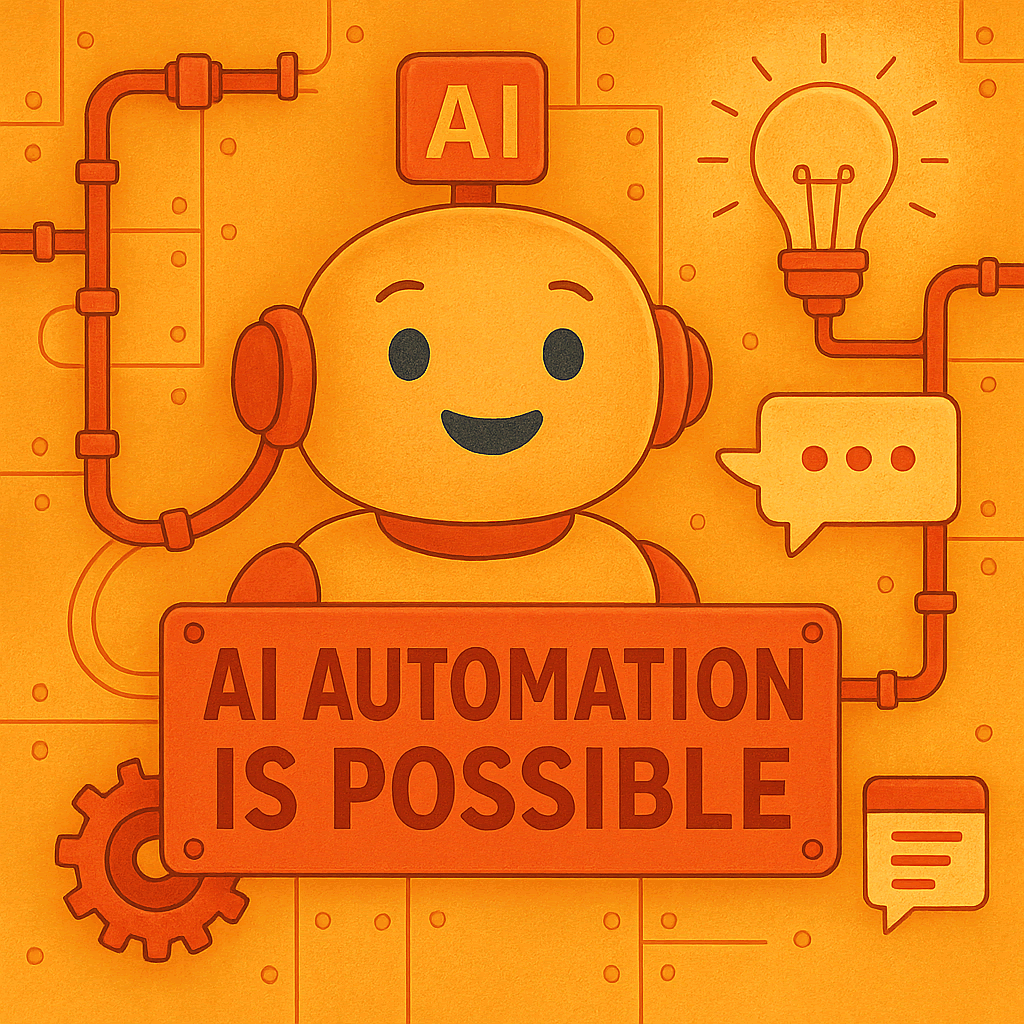
Here’s how AI bots can be applied across different areas of your site. For support, they can answer visitor questions in real time and offer helpful links or forms. For sales, bots can qualify leads, recommend products, and guide users through checkout. In content, they can personalize what users see based on their behavior or help generate articles and summaries. For operations, they can sort emails, track user activity, or alert you when certain actions happen.
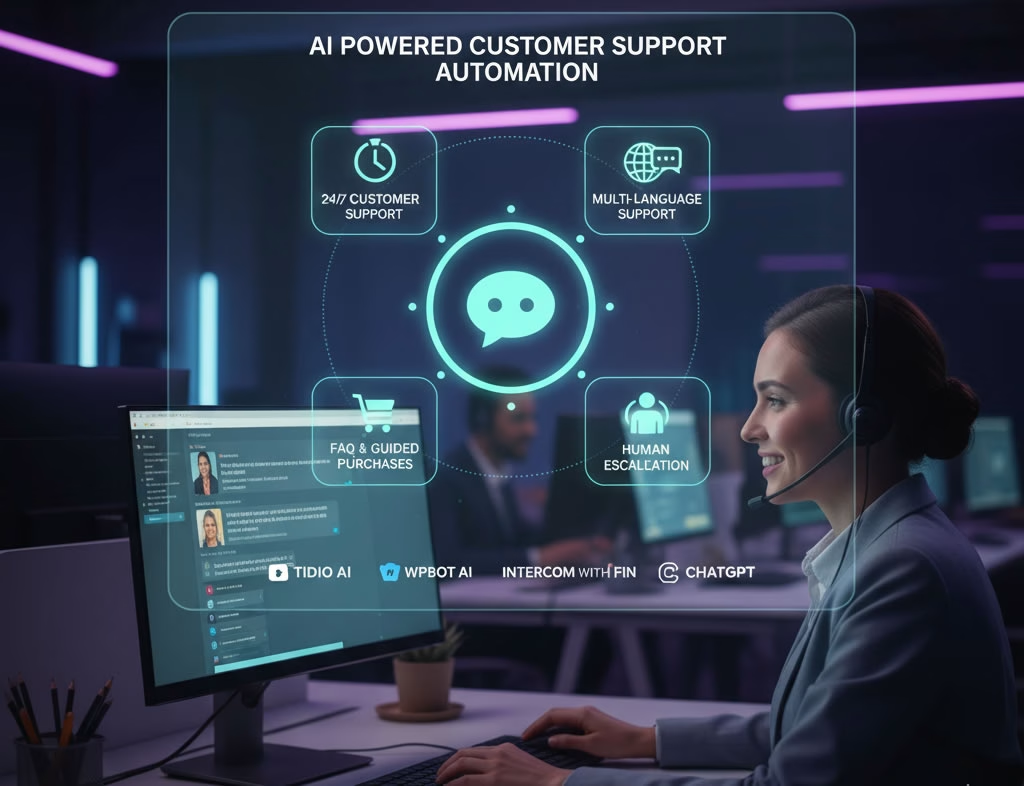
🔹 1. Customer Support Automation
Let AI handle common user questions or issues 24/7.
- Answer FAQs (shipping, returns, pricing)
- Guide users through forms or purchases
- Escalate complex issues to humans
- Multi-language support via AI translation
Tools: Tidio AI, WPBot AI, Intercom with Fin, ChatGPT via plugin
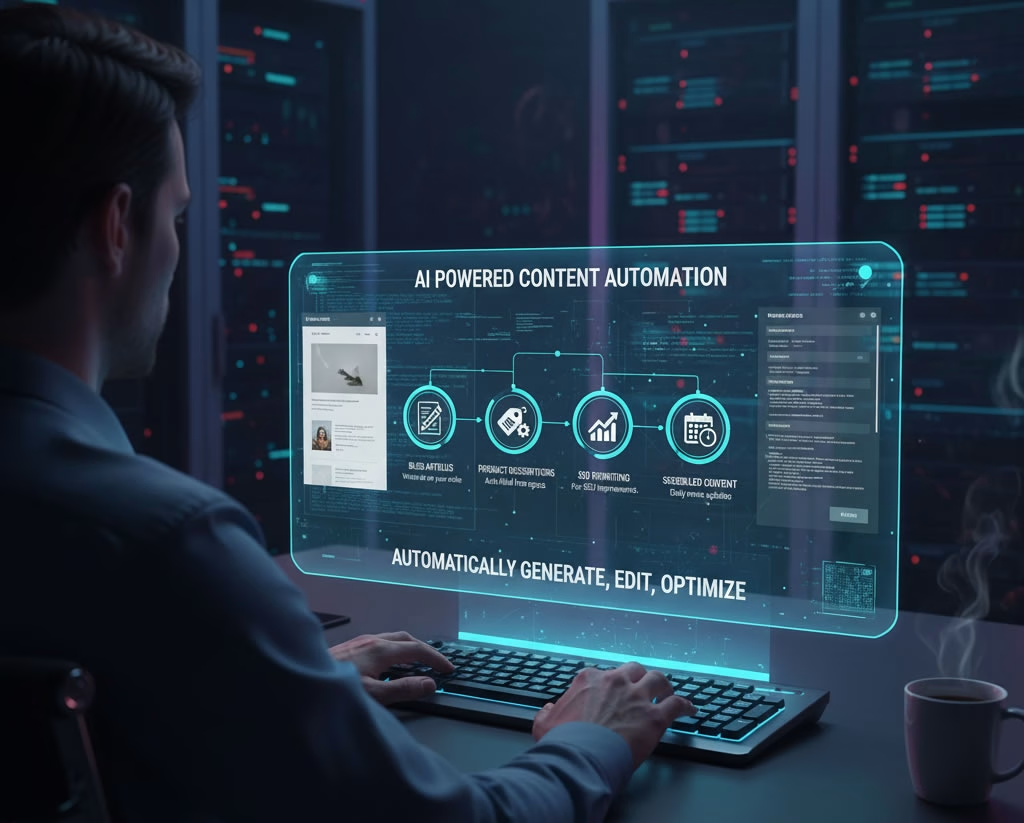
🔹 2. Content Automation
Automatically generate, edit, or optimize site content.
- Blog articles written daily on your niche
- Product descriptions auto-filled from specs
- AI rewriting tools for SEO improvements
- Scheduled content generation (e.g., daily news updates)
Tools: AI Engine, Bertha.ai, OpenAI API + cron job
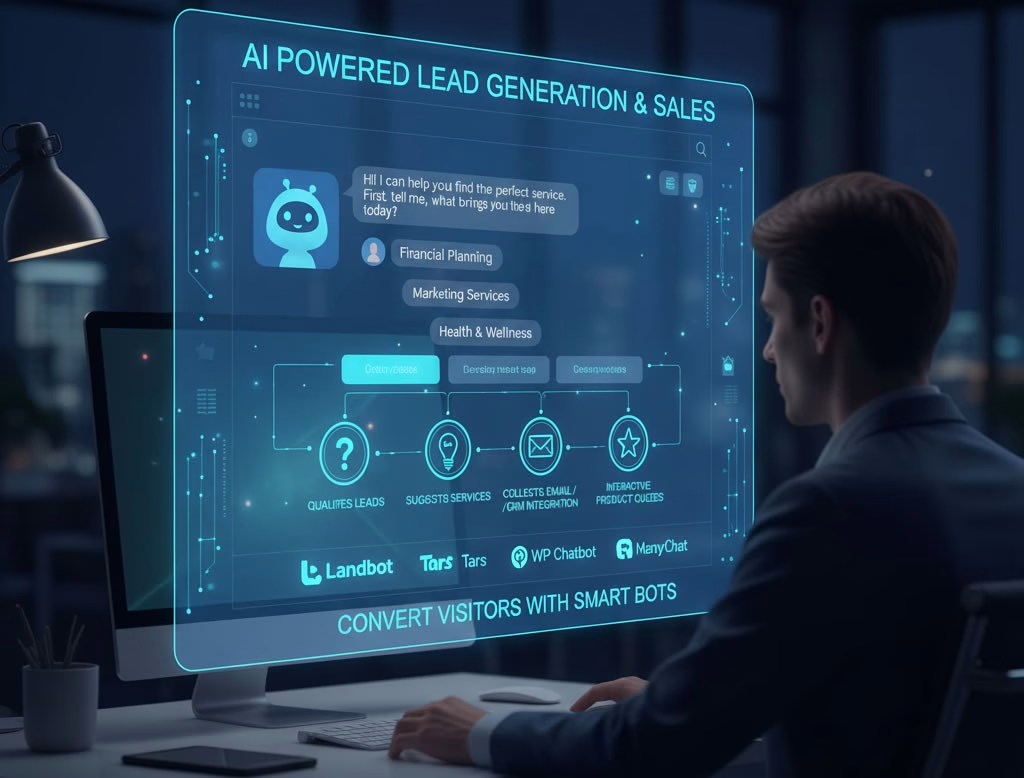
🔹 3. Lead Generation & Sales
Convert visitors using smart bots.
- Chatbot qualifies leads via questions
- Suggests services based on user answers
- Collects emails, sends data to CRM (Mailchimp, HubSpot)
- Interactive product quizzes powered by AI
Tools: Landbot, Tars, WP Chatbot, ManyChat

🔹 4. Personalization
Dynamically adjust your website experience.
- Personalized product or blog recommendations
- Dynamic greetings based on location or user behavior
- AI-powered upsell/cross-sell in WooCommerce
Tools: Recombee, Clerk.io, custom GPT plugins with user session logic
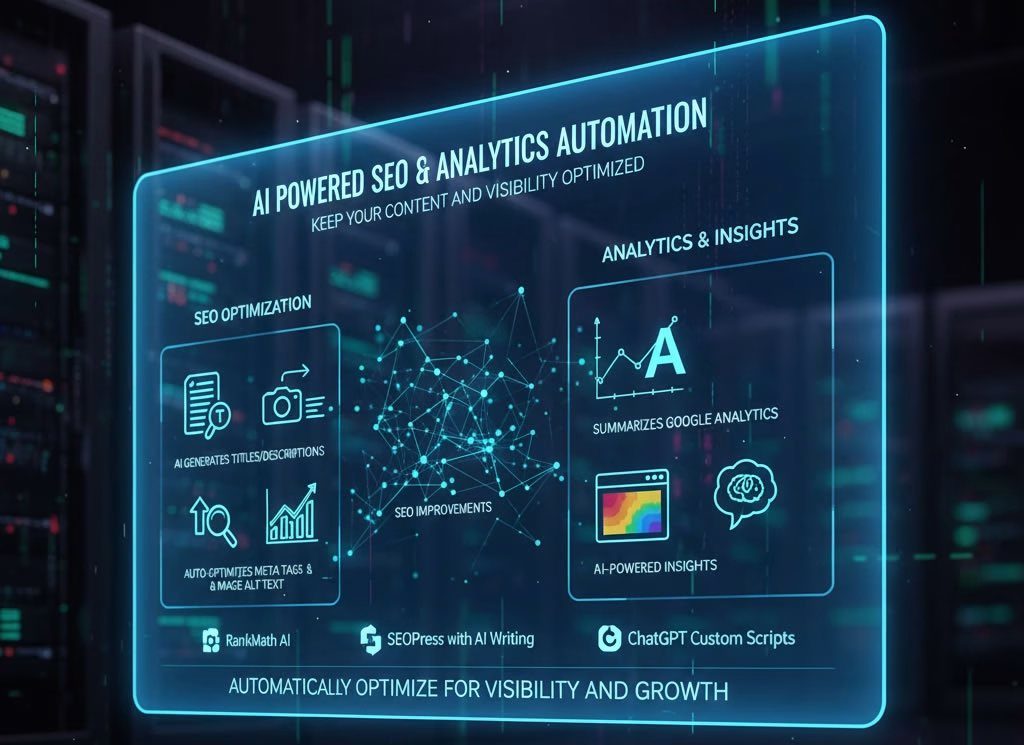
🔹 5. SEO & Analytics Automation
Keep your content and visibility optimized.
- AI generates SEO titles/descriptions on the fly
- Auto-optimizes meta tags and image alt text
- Summarizes Google Analytics or Hotjar user behavior
Tools: RankMath AI, SEOPress with AI writing, ChatGPT custom scripts

🔹 6. Admin & Workflow Automation
Save time managing the backend.
- Auto-tag or categorize posts using AI
- Summarize comments or reviews
- Convert form submissions into summaries or tasks
- AI detects spam or low-quality submissions
Tools: Zapier + OpenAI, Make (Integromat), WordPress Hooks + GPT
MORE LINKS:
AI bots installation
ChatGPT integration
Content generation
AI user support
Best CMS for AI
AI in small business
AI newsletters
Content moderation
SEO optimization
WHAT KIND OF AI AUTOMATION IS POSSIBLE?
In the modern digital landscape of 2026, automation has transitioned from a supplementary tool into an essential component of any forward-thinking business strategy, particularly for companies looking to maximize efficiency, reduce operational costs, and elevate user experiences without requiring proportional increases in workforce or infrastructure. At Wemaxa, we focus on implementing sophisticated automation systems that are not only tailored to the unique needs of each client but also designed to integrate seamlessly with existing workflows, ensuring minimal disruption and maximum return on investment. The scope of automation we provide ranges from customer-facing interfaces to behind-the-scenes operational processes, all leveraging the latest AI technologies, machine learning algorithms, and integration platforms to deliver measurable improvements across multiple business functions. By automating repetitive tasks, streamlining communications, and enabling intelligent decision-making processes, businesses can redirect human effort toward higher-value activities such as strategy, innovation, and creative problem-solving, ultimately transforming the organization into a more agile, responsive, and profitable entity in an increasingly competitive digital marketplace. For more context on automation trends and capabilities, platforms like ZDNet Automation Insights provide a comprehensive overview of how modern organizations are deploying these technologies effectively.
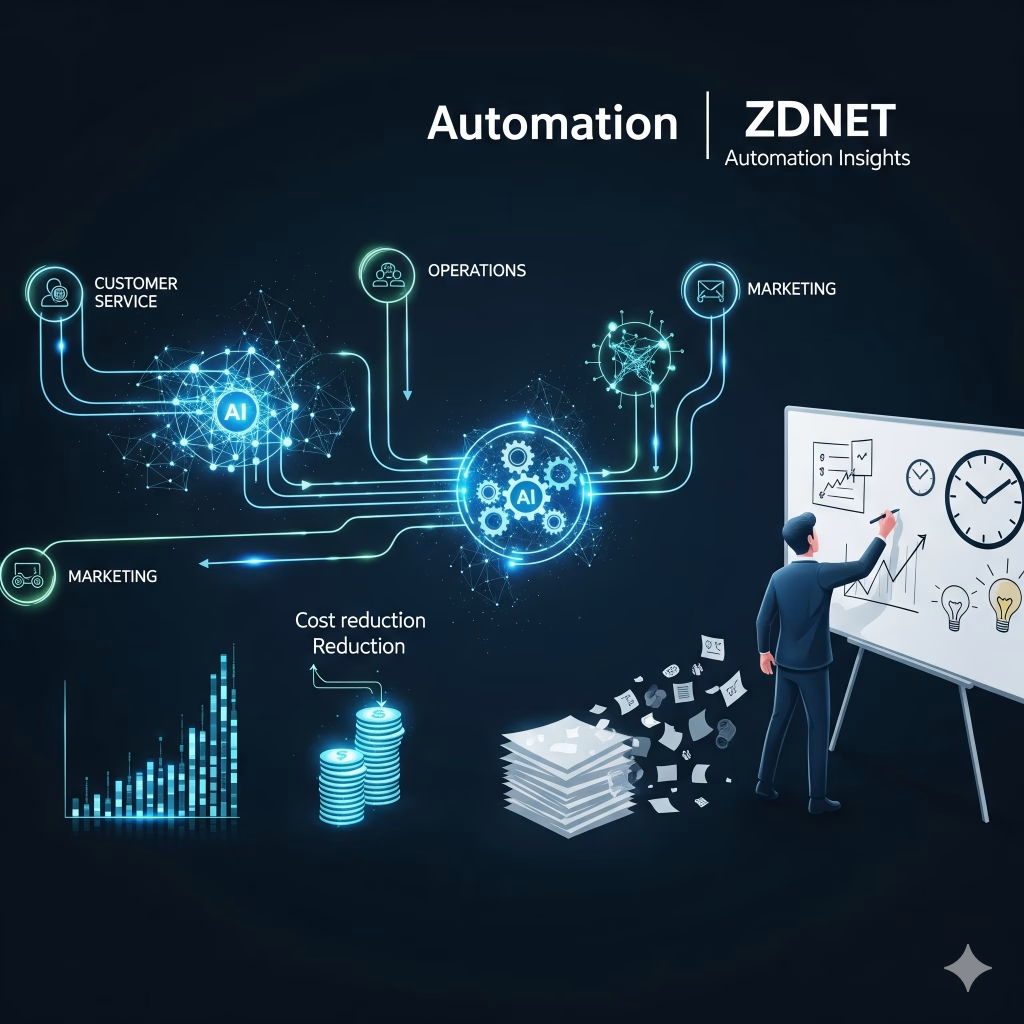
Customer support automation exemplifies one of the most impactful applications of modern AI technology, as it allows businesses to provide 24/7 service without the traditional limitations of human staffing, thereby increasing customer satisfaction and loyalty while simultaneously reducing operational overhead. AI-driven chatbots, powered by advanced natural language processing engines, can handle a wide spectrum of user interactions, from answering frequently asked questions and guiding users through complex processes to escalating critical issues to human agents only when necessary, ensuring that resources are allocated efficiently and high-touch interactions receive appropriate attention. By integrating platforms such as Intercom and Tidio, businesses can create dynamic, context-aware conversations that adapt in real time to user input, historical behavior, and even sentiment analysis, providing a level of personalization and responsiveness that was previously unattainable. Such automation not only improves response times but also generates valuable behavioral data, enabling ongoing optimization and informed decision-making regarding customer support strategies.
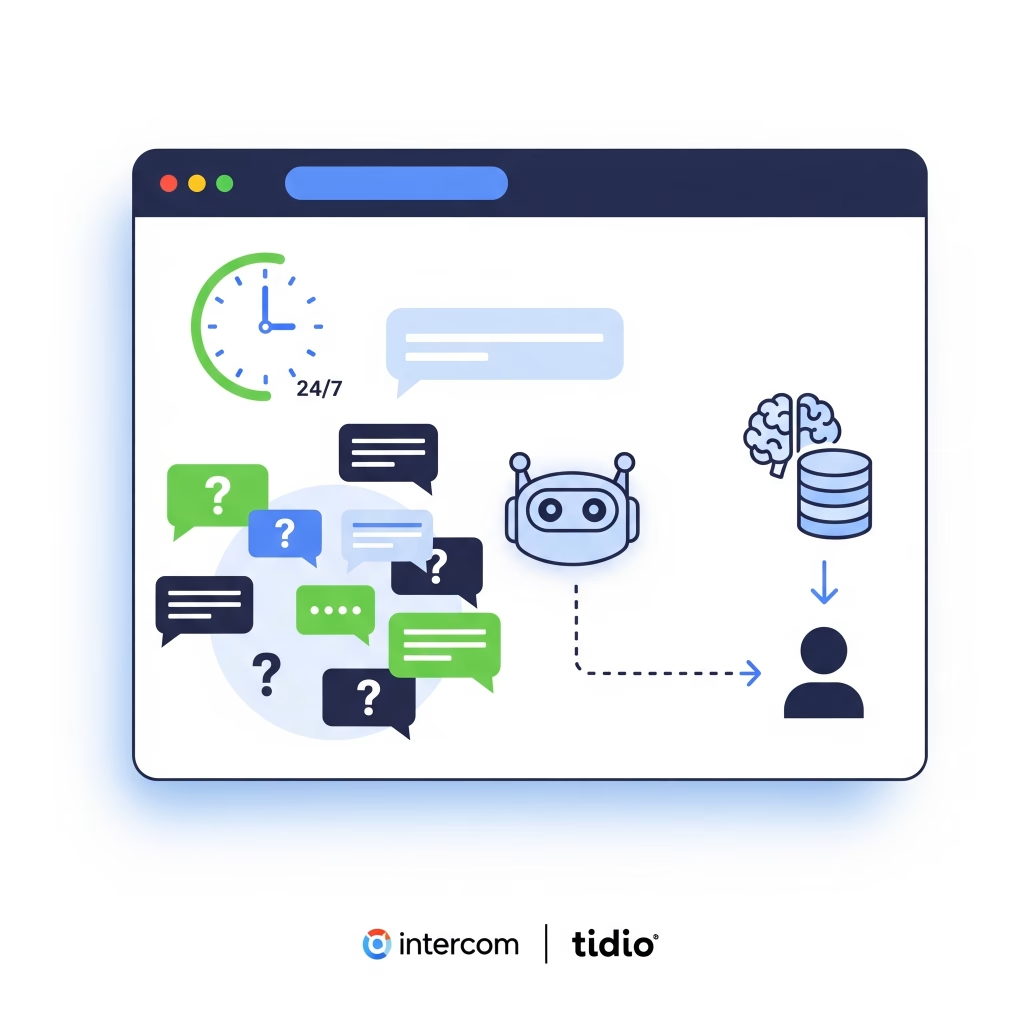
Content creation and distribution automation represents another area where businesses can achieve substantial gains, particularly in the context of digital marketing and SEO strategies. By leveraging AI-powered content generation tools such as OpenAI GPT and Bertha.ai, organizations can automatically generate blog articles, product descriptions, social media updates, and other marketing content that aligns with brand voice and target audience preferences, reducing the time and cost typically associated with manual content creation. Beyond generation, automation platforms can schedule, optimize, and distribute content across multiple channels based on engagement metrics, user segmentation, and trending topics, ensuring that the right message reaches the right audience at the right time. This level of sophistication in content automation not only improves visibility and engagement but also enhances the effectiveness of marketing campaigns by enabling continuous iteration based on performance data, all without requiring constant human intervention.
In addition to customer engagement and content optimization, lead generation and sales automation has become a critical factor for businesses striving to convert website traffic into qualified prospects and revenue. Automated systems can capture leads through interactive chatbots, web forms, or personalized landing pages, immediately qualify prospects using predefined scoring criteria, and nurture them through tailored email sequences, retargeting campaigns, and dynamic follow-ups. Platforms like Landbot and ManyChat allow companies to construct complex, automated customer journeys that mimic high-touch sales interactions while scaling infinitely without additional human effort. By integrating these tools with Customer Relationship Management (CRM) systems and analytics dashboards, businesses gain comprehensive visibility into pipeline performance, conversion rates, and the effectiveness of automated workflows, enabling continuous refinement and maximization of return on investment.
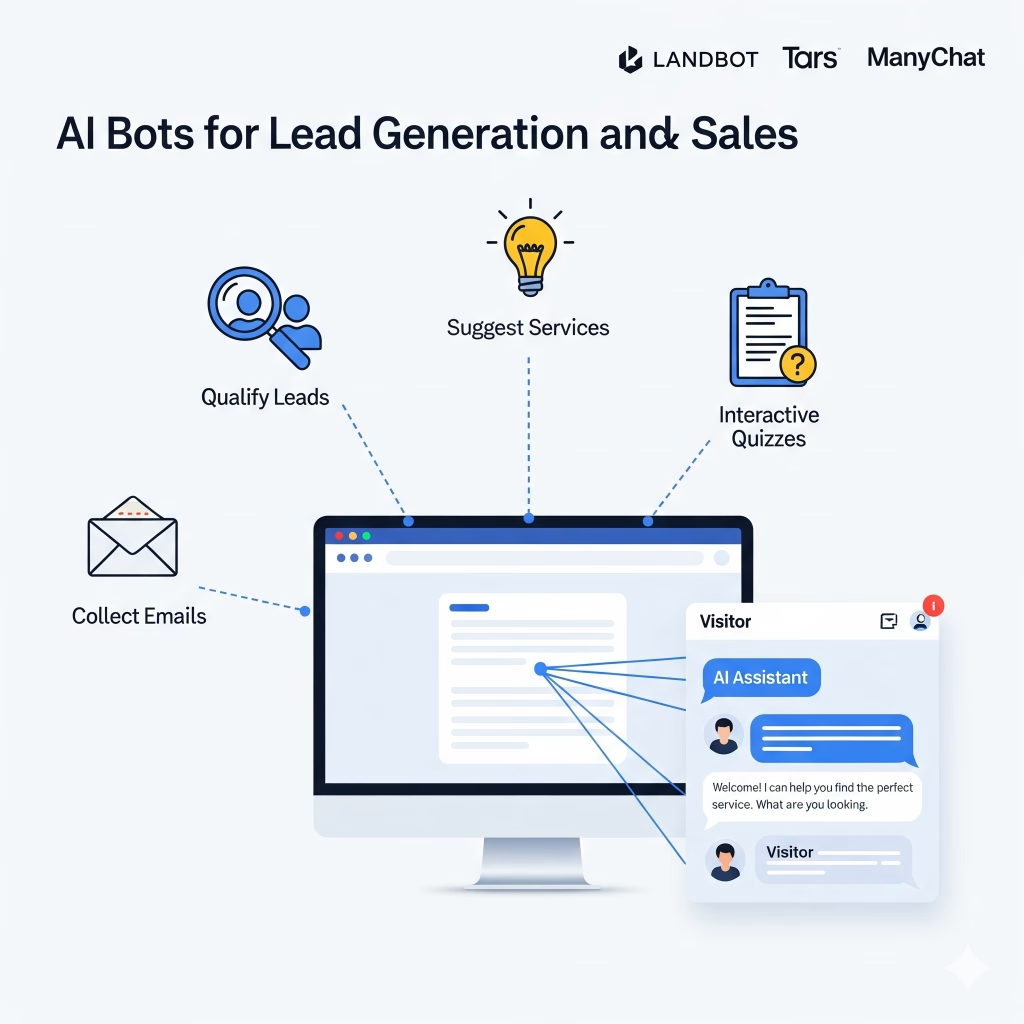
Personalization automation extends beyond lead capture and content creation to create a fully customized experience for each user, dynamically adapting website interfaces, product recommendations, marketing messages, and service interactions based on real-time user behavior, historical data, and predictive analytics. By implementing tools like Recombee and Clerk.io, businesses can automatically adjust product suggestions, promotional banners, or navigation paths to match user preferences, thereby increasing engagement, satisfaction, and ultimately conversion rates. Advanced personalization not only drives immediate revenue gains but also fosters long-term customer loyalty, as each interaction becomes more relevant, timely, and meaningful, demonstrating an understanding of the customer’s unique needs and behavior patterns without requiring constant manual curation.
Workflow and administrative automation addresses the often-overlooked back-office functions that consume significant time and resources. By automating tasks such as categorizing content, summarizing customer feedback, processing forms, or generating actionable reports, organizations can reduce human error, accelerate operational processes, and free up employees to focus on strategic initiatives. Integration platforms like Zapier and Make enable seamless automation across multiple applications and business systems, ensuring that data flows consistently, notifications are triggered appropriately, and routine tasks occur without manual oversight. This level of automation transforms internal workflows into highly efficient, low-friction operations, providing a foundation for scalable growth.
Ultimately, automation is not a one-size-fits-all solution; it requires careful planning, strategic implementation, and ongoing monitoring to align with the specific goals and processes of each business. At Wemaxa, we provide end-to-end guidance, from consultation and design to integration and optimization, ensuring that your automation strategy delivers tangible results, whether the focus is on improving customer engagement, increasing operational efficiency, enhancing content strategy, or driving revenue growth. By leveraging the most advanced tools, techniques, and AI capabilities available in 2026, we empower businesses to operate at unprecedented speed, scale, and precision. For further insights into how automation can transform your organization, explore our extended resources on What Kind of Automation Is Possible?, which provide comprehensive examples, case studies, and technical guidance to help you implement the most effective automation strategies for your unique business challenges.


